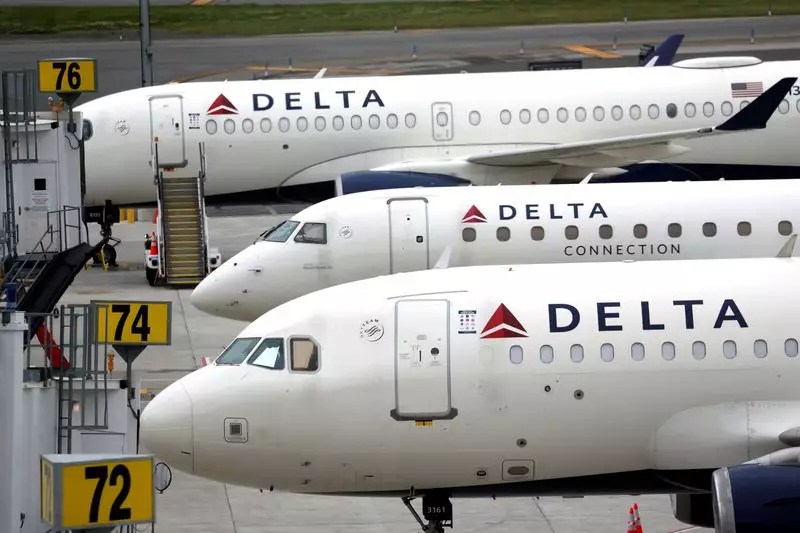In July 2023, Delta Air Lines faced a significant crisis when a problematic software update from cybersecurity firm CrowdStrike led to an extensive outage that resulted in more than 7,000 flight cancellations over a five-day period. This catastrophic event affected approximately 1.3 million passengers and incurred costs exceeding $500 million for the airline. As individuals and businesses around the globe experienced disruptions, the aviation sector, in particular, became a focal point of frustration—showcasing not just the vulnerabilities of airline operations but also the potential ramifications of technological missteps.
In response to this incident, Delta filed a lawsuit against CrowdStrike, claiming that the entire debacle stemmed from the firm’s negligence in providing untested software updates. The airline accused CrowdStrike of facilitating a “catastrophic” event, which reportedly affected over 8.5 million Windows-based computers worldwide. Delta’s legal strategy aims not only to recover financial losses but also to address the reputational damage sustained during the outage. The ramifications extend beyond immediate monetary loss; they encroach upon customer trust and the airline’s operational reliability—both vital in an industry that thrives on punctuality and passenger confidence.
CrowdStrike wasted no time in responding, asserting that Delta’s claims are misguided and stem from an inadequate understanding of contemporary cybersecurity practices. The firm argued that Delta’s issues highlight a failure to modernize its own infrastructure, insinuating that responsibility lies not solely with CrowdStrike but also with the inadequacies inherent in Delta’s IT systems. This claim underscores an important theme in the cybersecurity landscape: when technological partnerships falter, blame can often be assigned in multiple directions, revealing the complexities inherent in such collaborations.
The far-reaching nature of this incident sparked an investigation by the U.S. Transportation Department, emphasizing the vulnerability of crucial industries to technology failures. The outcry from Delta reflects a larger concern about the reliance on third-party vendors for critical software solutions. As more organizations outsource aspects of their IT infrastructure, the potential for catastrophic failures increases unless robust testing and contingency plans are implemented.
Both Delta and CrowdStrike’s public narratives indicate an evolving dialogue about accountability in the digital age. Moving forward, the aviation industry must reevaluate its technology integration practices. Airlines, alongside their cybersecurity partners, must invest in rigorous testing protocols, commensurate with their level of reliance on those software solutions to prevent similar incidents. As Adam Meyers, CrowdStrike’s senior vice president, noted following the congressional hearing, the imperative to learn from failures is clear. Ensuring that technological mishaps do not repeat requires proactive measures, continuous investment in infrastructure, and, crucially, fostering transparent, communicative relationships with service providers.
The Delta-CrowdStrike dispute not only epitomizes a clash over responsibility but also serves as a sobering wake-up call for industries reliant on increasingly intricate technologies. As the landscape shifts, collaboration, vigilance, and planning will be key to safeguarding operations and restoring public confidence.


Leave a Reply